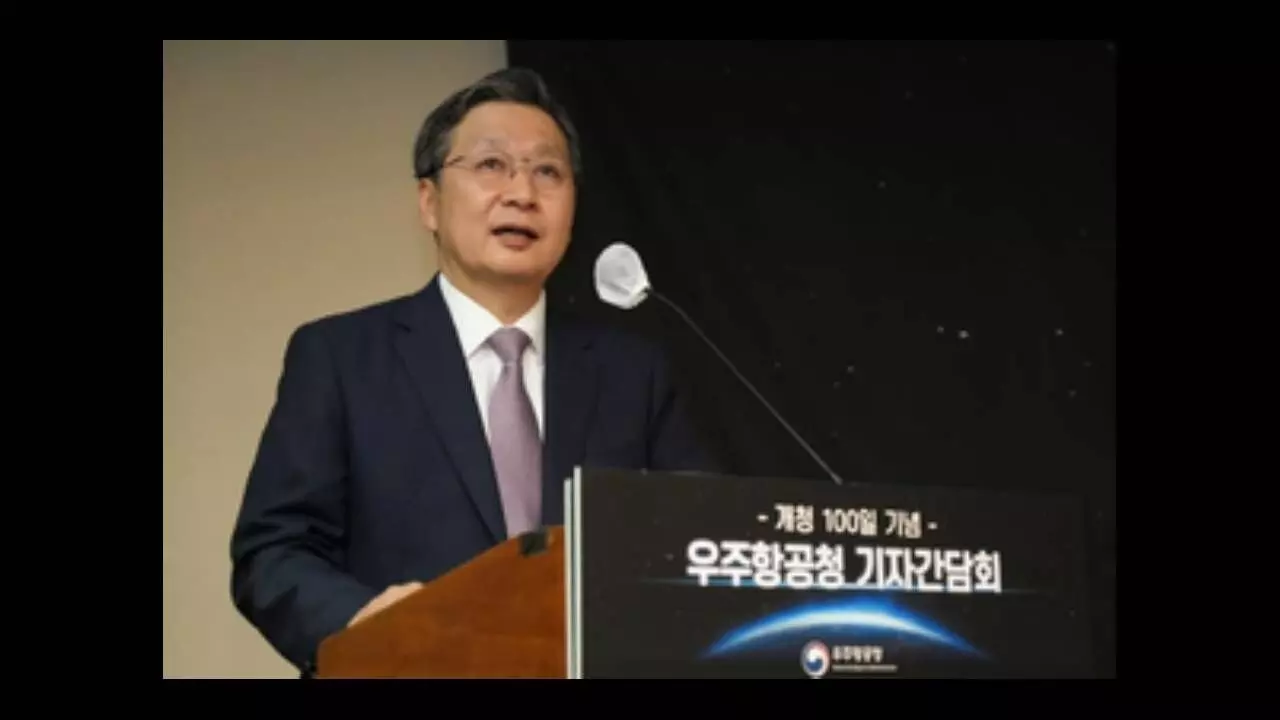S. Korea to strengthen space exploration capabilities to compete in global space race: KASA
South Korean space agency Korea AeroSpace Administration (KASA) on Thursday unveiled an ambitious vision to develop a competitive space transportation system and a forward-looking exploration strategy, aiming to join the elite ranks in the global space race
image for illustrative purpose

Seoul, Sep 5: South Korean space agency Korea AeroSpace Administration (KASA) on Thursday unveiled an ambitious vision to develop a competitive space transportation system and a forward-looking exploration strategy, aiming to join the elite ranks in the global space race.
"We aim to make aerospace one of the major industries for South Korea and account for 10 per cent of the global market by around 2045," Yoon Young-bin, head of South Korea's national space agency, said in a press conference, Yonhap news agency reported.
Yoon emphasised the goal of creating a space economy by building a cost-effective transportation system by the 2030s.
He said KASA will build a "space passageway" to connect Earth to different points in space and develop an orbital transfer vehicle and reentry vehicle to lower the cost of space transportation in low Earth orbit to under US$1,000 per kilogram.
South Korea's current homegrown space rocket, Nuri, has a shipping cost of $24,000 per kilogram, while SpaceX offers transport for around $2,000 to $3,000 per kilogram.
KASA is also mapping out a comprehensive road map for deep space exploration, including missions to Lagrange point L4, the moon and Mars, Yoon said.
Earlier this year, KASA announced its plan to send a spaceship to L4, one of the five Lagrange points about 380,000 kilometres from Earth, in 2035 to observe the sun in cooperation with major space powers, including the US, Japan and Britain.
Furthermore, the agency envisions constructing the world's first solar observatory in the L4 region to effectively monitor space weather that has huge influence on communications, aircraft operations and space exploration.
The agency's long-term plans include landing a homegrown spacecraft on the moon by 2032 and on Mars by 2045.
Additionally, KASA is focused on fostering a private-led aerospace industry, supporting the development of advanced radar satellites, hypersonic propulsion, swarm drones and hydrogen-powered aircraft.
Yoon said KASA will increase efforts to expand its presence among global space powers by actively participating in international cooperation projects and fostering the Korean space industry's research and development capabilities.
Yoon said he plans to visit the headquarters of the U.S. National Aeronautics and Space Administration later this month to meet with its chief administrator, Bill Nelson, and discuss expanding cooperation between the two agencies.

